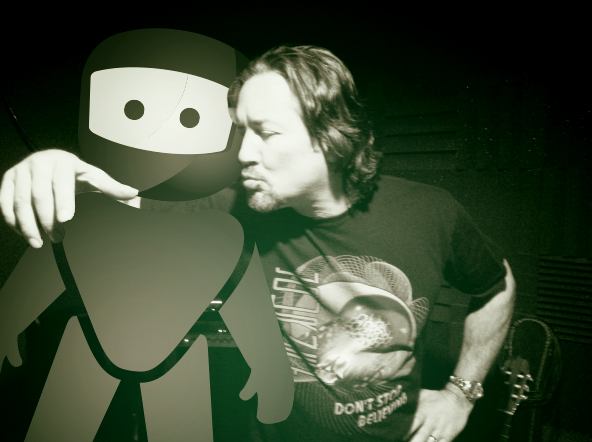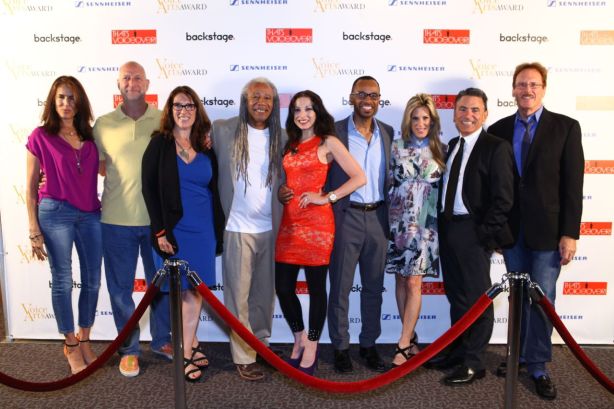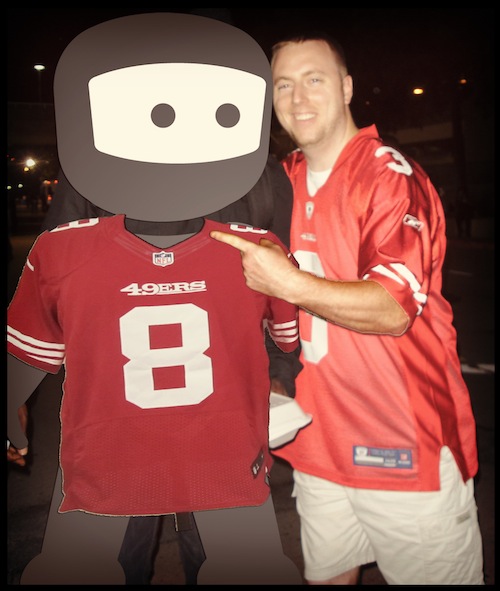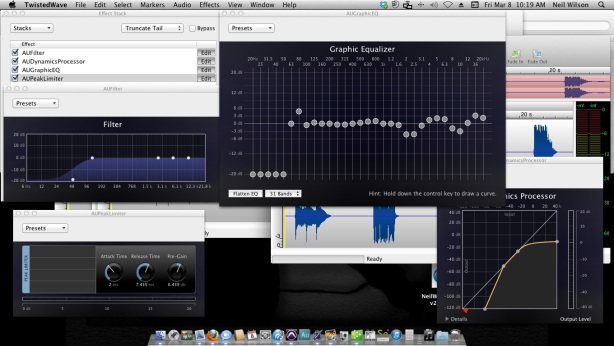The legendary Dr. Dave recently joined Benztown’s voice-over roster, and we couldn’t be more excited about it. We had the pleasure of visiting with him last week when he was in town for the AllAccess.com Worldwide Radio Summit. So, for your reading pleasure….here’s Dr. Dave!
Dr. Dave’s Links: Loose Cannon Communications | Dr. Dave on Benztown
What radio VO work have you done in the past (stations/markets)? What are you up to presently (freelance/on-staff at a station)? I’ve been on in lots of markets over the last twenty years, many of which I still voice today- like WPGC Washington, Jamz Greensboro, WGCI Chicago, WUSL Philly,WLLD Tampa, KSFM Sacramento. I’ve done VO as a fulltime job since 2000 and currently on close to 90 stations in the US, Bermuda, England, Trinidad, Netherlands, Jamaica and more.
What do you love about working as a freelance VO talent? Being in control of my day from start to finish… well, most of the time at least.
How did you get started as a VO actor? What was your first gig? I was an on air personality on WPGC in the late 80s. Jerry Clifton was our consultant and he also voiced a lot of our imaging. When he wasn’t available, I would voice the imaging doing my best Clifton impersonation. It grew from there to me voicing a lot of his other client-stations by the early 90s.
Have you ever had a voice coach? Yes, and I wish I had found one much earlier in my career. It really is helpful, especially for TV work.
Who are your VO idols/mentors? Let’s see, there’s Dave Foxx, Malcom Ryker, and Pat Garrett to name a few. I wouldn’t say they’re mentors, but definitely guys who’s work I admire. I don’t focus on any one person or even know many voice actors by name- other than the ones in radio that I’ve had interaction with.
Who influenced your work as a voice-over artist? Clifton certainly did back in the day, because he gave me my start, but more recently I think I would have to say Pat Garrett, because I’ve learned a lot by watching how multidimensional he’s become. That’s something I admire and strive to emulate.
What is your dream job? I’m living it right now. I visualized myself doing this when I was just a 12 year old kid listening to KCLV 1240-AM in Clovis, New Mexico. Sometimes I have to pinch myself to make sure it’s not a dream.
Where did you work before radio? I did my first radio internship at 13, and got my first paying radio job at 16. The only other work I’ve done were some short stints in construction and roofing in between radio jobs when I was a teen. I worked at Denny’s bussing tables for a few weeks, but that wasn’t for me. That’s too much like real work!
What would be your 3 main tips for the younger crowd trying to start a VO career?1-First, I’d say what Joe Kelly told me a few years ago: “Save your money”! 2- Don’t get complacent. 3- Never stop learning.
How do you schedule your work (priorities…..)? I keep a very disciplined schedule. You have to when you work for yourself. I’m in the studio every morning by 8am, and on call until around 5pm. In between VO sessions I’m doing banking/finance, exercising, reading, or tinkering in the studio with plugins and effects.
With such a large number of radio station clients, how do you keep them all happy? On busy days I try to keep the stress under control, and never let them see me sweat. My clients can be demanding sometimes, and I’ve spoiled them into expecting really fast turnaround. If I can’t get a read back to them in a timely manner, I communicate that to them to manage expectations.
How much time do you spend auditioning for new work? It varies. Some days there are no auditions at all, and others there are several, and the paying customers come first, so if I have to blow off a couple auditions during the week, I’ll take a Saturday morning and do them just to work on delivery and pacing.
How do you market your services to potential clients? The talent agency does some of that, and I use trades to promote new demos, as well as press releases.But I need to get better at marketing myself this year. I’m guilty myself of becoming complacent at times, and I can do better.
You’ve been voicing radio stations for over 20 years. How do you keep current to stay in demand for new clients? That’s the biggest challenge- evolving my sound to stay relevant. I’ve actually had people tell me that I sound younger now than I did ten years ago. Some of that is a healthier life style, but some is competitive nature too. The fear of failure is a great motivator!
What gear do you use (microphone, pre-amp, booth, …)? I use a Synnheiser shotgun mic running through a Symetrix 528. I love the vintage rack units like Aphex 661, but they’re getting harder and harder to find. The last one I bough on Ebay was so damaged it had to go back. Most of the VO processing happens in post with either Waves plugins or Adobe Audition effects.
When it comes to VO work, studio & gear, what are your most ingenious methods/discoveries for saving time and cash? Well, plugins for one. You don’t have to have a rack unit anymore, which makes it much easier to work on the go. My portable fits in the overhead compartment of a plane, and I’m sure with technology moving so quickly it will get smaller and smaller. Maybe we’ll have personalized virtual studios soon using cloud technology. Technology can be bad too though. I think that down the road VO could be completely automated with each voice being a simulation. Staying ahead of the tech curve is going to be the key to staying in business.

























